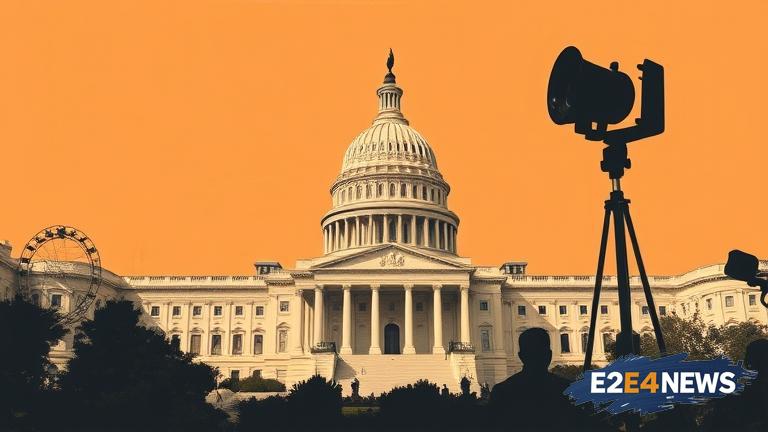The US Congress is set to make a decision on funding for various programs, including NPR, PBS, and foreign aid, in the coming week. The decision will have significant implications for the future of public media and international relations. NPR and PBS, both publicly funded media organizations, have been targets of funding cuts in the past. The proposed cuts have sparked widespread debate, with proponents arguing that they are necessary to reduce the national debt, while opponents claim that they will have a devastating impact on the quality of programming and the ability of these organizations to serve the public interest. Foreign aid programs are also on the chopping block, with some lawmakers arguing that the funds could be better spent on domestic priorities. However, others argue that foreign aid is essential for maintaining global stability and promoting American interests abroad. The funding decisions will be made as part of the annual appropriations process, which determines the budget for various government programs. The process is often contentious, with lawmakers from different parties and ideologies vying for influence. This year’s process is particularly complex, with the added pressure of a looming government shutdown. If Congress fails to pass a spending bill, many government programs, including NPR and PBS, could be forced to shut down or significantly reduce operations. The potential funding cuts have sparked outrage among supporters of public media, who argue that these organizations provide essential services, including news, education, and cultural programming. Many have taken to social media to express their opposition to the proposed cuts, using hashtags such as #SaveNPR and #SavePBS. Despite the opposition, it remains unclear whether Congress will ultimately decide to cut funding for these programs. The decision will depend on a variety of factors, including the political climate and the priorities of lawmakers. Some lawmakers have expressed support for maintaining or even increasing funding for public media and foreign aid programs, citing their importance for the public interest and national security. Others have argued that the funds could be better spent on other priorities, such as infrastructure or defense. As the debate continues, one thing is clear: the decision on funding for NPR, PBS, and foreign aid will have significant implications for the future of public media and international relations. The US has a long history of supporting public media and foreign aid programs, and any significant cuts could have far-reaching consequences. The decision will also reflect the priorities and values of the US government, and will be closely watched by allies and adversaries around the world. In recent years, there has been a growing trend towards reducing funding for public media and foreign aid programs, with some arguing that these programs are no longer essential in the modern era. However, others argue that these programs are more important than ever, providing essential services and promoting American interests abroad. As the US Congress weighs the funding decisions, it is clear that the outcome will have significant implications for the future of public media and international relations.
